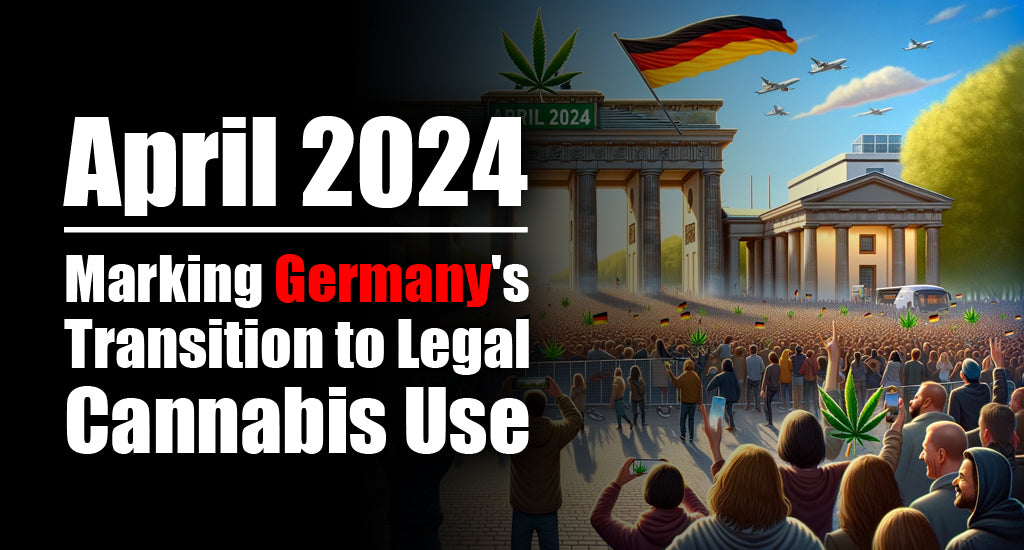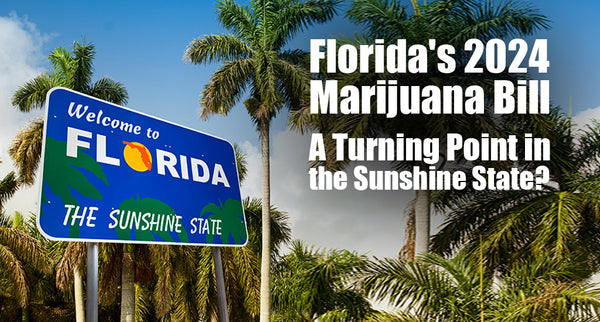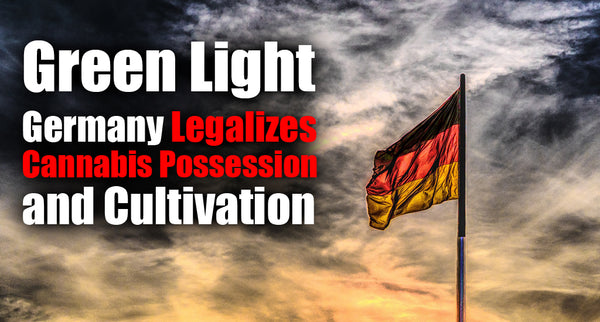
April 2024: Marking Germany's Transition to Legal Cannabis Use
In the ever-evolving landscape of drug policy reform, Germany stands on the cusp of a significant shift with its government coalition reaching a final deal on cannabis legalization. This movement towards legalization marks a pivotal change in the nation's stance on cannabis, reflecting a broader global trend towards the acceptance and regulation of this substance.
The German government's approach aims to balance public health, safety, and the reduction of the black market, while also navigating the complex legal and social implications of such a policy change.
Germany's Green Light on Cannabis
The German coalition government, often referred to as the Traffic Light Coalition due to the participating political parties' colors, has finalized its stance on cannabis legalization. This decision is anticipated to transform the legal landscape surrounding cannabis use, possession, and cultivation in Germany, setting a precedent for a regulated market aimed at adults. This move is not just about legalizing cannabis; it's about reshaping societal attitudes, enhancing public health, and tackling the illicit market head-on.
Comparing Cannabis Legalization in Germany and the United States
Germany's approach to cannabis legalization has been notably influenced by global trends, particularly observing the models established by countries like the United States, where various states have implemented their own forms of cannabis legalization. The German government has sought to create a regulated market that addresses public health concerns, reduces illegal trade, and provides consumer protection, similar to objectives seen in the American context. However, there are distinct differences in the approach and specifics of the legislation that reflect Germany's unique legal, social, and political landscape.
-
Consumer Protection and Regulation: Germany's plan includes decriminalizing the purchase and possession of small amounts of cannabis, allowing sales in licensed shops but banning advertising to promote consumption. This mirrors aspects of the American model, where states regulate the sale and advertising of cannabis within a legal framework designed to protect consumers and minors.
-
Legislative Challenges and Coalition Politics: The process of legalization in Germany has involved complex negotiations within the coalition government, reflecting the multifaceted political environment. This is somewhat similar to the U.S., where cannabis legalization efforts often involve intricate legislative processes and negotiations across different political and interest groups.
-
Focus on Public Health and Safety: Both Germany and the U.S. share a focus on public health and safety in their cannabis legalization efforts. Germany's legislation emphasizes protecting consumers against contaminated marijuana and reducing drug-related crime, alongside campaigns to raise awareness about the risks associated with cannabis use. This reflects a holistic approach to drug policy that also echoes in American states that have legalized cannabis, where public health campaigns and strict product testing and safety standards are prevalent.
-
Cultivation and Sale Regulations: In terms of cultivation and sale, Germany is considering a controlled distribution system through licensed shops and potentially pharmacies, similar to the dispensary model in the U.S. However, Germany is also contemplating allowing "specialty stores with consumption options," akin to the Dutch coffee shop model, which represents a divergence from the typical American dispensary system.
-
Legal and International Considerations: Germany's legalization effort must navigate international law constraints, a challenge not directly applicable to the U.S. federal system but reflective of the broader global context in which cannabis legalization occurs. Germany's adherence to international treaties and EU law presents unique hurdles not faced by American states, which operate under the federalist structure of the U.S. legal system.
While Germany's cannabis legalization effort is inspired by models such as those in the U.S., it is adapted to fit its specific legal, societal, and political context. The German approach seeks to balance public health, consumer protection, and legal considerations within a framework that acknowledges the successes and challenges of other countries' experiences with cannabis legalization.
The Path to Legalization: A Coalition Consensus
The coalition, composed of the Social Democratic Party, Free Democratic Party, and The Greens, has navigated through intensive negotiations to craft a law that prioritizes youth and health protection, and ends criminalization in a practical manner. The law, expected to come into effect on April 1, 2024, proposes that adults can grow up to three plants and possess up to 50 grams of cannabis for personal use, a significant increase from the initial proposal. This legislation also includes specific provisions to protect young people, such as prohibiting cultivation within 100 meters of schools and other areas frequented by children.
A Modern Drug Policy: Goals and Opposition
Germany's push towards a modern drug policy through cannabis legalization embodies a strategic shift towards consumer protection, market regulation, and public health. This legislative initiative seeks to dismantle the illicit cannabis market, introduce a regulated distribution framework, and ensure consumer safety from unregulated products. Despite its comprehensive approach, the proposal has encountered resistance on several fronts, illustrating the complexities of drug policy reform in a diverse political landscape.
-
Consumer Protection: Central to the legislation is the aim to safeguard consumers from the dangers of unregulated cannabis products, which may contain harmful substances. Legalization allows for quality control and standardization, reducing health risks associated with contaminated products.
-
Undercutting the Black Market: By establishing a legal and regulated cannabis market, the government intends to weaken the illicit trade, cut off a significant revenue stream for organized crime, and control the product's quality and distribution.
-
Controlled Distribution System: The move towards legalization includes setting up a framework for controlled cannabis distribution. This system aims to balance accessibility for adults while implementing safeguards to prevent underage use and access.
However, the proposal's journey has not been without contention:
-
Opposition from State Governments: Some of Germany's state governments have voiced concerns over the law's enforcement and its implications for policing, fearing it may strain resources or complicate existing drug enforcement efforts.
-
Coalition Divisions: Within the governing coalition, there are differing opinions on the extent and specifics of cannabis legalization, reflecting a broader societal debate on drug policy and public health.
-
Public Health Concerns: Critics argue that legalization may lead to increased use among young people, potentially impacting public health. Proponents counter that regulation will provide more opportunities for education and harm reduction strategies.
Despite these challenges, the push for cannabis legalization in Germany represents a significant shift towards addressing the inefficacies of prohibition, highlighting a nuanced approach to drug policy that balances safety, control, and public health.
Looking Ahead: Implementation and Challenges
As Germany prepares for the significant shift towards cannabis legalization, it faces a labyrinth of implementation and regulatory hurdles that demand careful attention and strategic planning. The transition from prohibition to a regulated market introduces several practical challenges that must be addressed to ensure the success of this legislative change. The government's holistic approach aims not only to open up legal channels for cannabis consumption but also to safeguard public health and safety, especially in sensitive areas like schools and youth centers.
-
Establishment of Cannabis Social Clubs: These entities will play a crucial role in the controlled distribution of cannabis. Setting them up involves regulatory frameworks to govern their operation, membership rules, and product quality standards to ensure safety and compliance.
-
Cultivation and Possession Limits: Defining the specifics of how much cannabis individuals can grow and possess is crucial. These limits must balance the objectives of reducing illegal trade while preventing overproduction and potential abuse. The law specifies up to three plants for personal cultivation and possession limits of up to 50 grams for personal use, reflecting a compromise between liberal access and control.
-
Enforcement Near Schools and Youth Centers: The legislation includes provisions to protect young people, such as prohibiting cannabis cultivation and consumption within 100 meters of places frequented by children. Effective enforcement will require collaboration between local authorities, law enforcement, and educational institutions to ensure these zones remain drug-free.
-
Impaired Driving Standards: With legalization, the issue of impaired driving becomes more prominent. The government plans to establish THC limits for drivers by the end of March 2024, aiming to maintain road safety while adapting to the new legal landscape of cannabis use.
-
Public Health and Education: Beyond regulatory enforcement, there's a significant need for public health initiatives and education campaigns to inform the population about responsible use, the risks associated with cannabis, and the specifics of the new law. This includes targeting vulnerable populations with messages about the potential risks and harms of cannabis use.
-
Addressing the Black Market: One of the legalization's goals is to undercut the illegal cannabis trade. This will require monitoring and adjustments to ensure the legal market is competitive and can effectively reduce the black market's influence.
Germany's path to cannabis legalization is a testament to its commitment to progressive drug policy reform. However, the success of this endeavor will largely depend on how these implementation challenges are navigated, requiring a concerted effort from all stakeholders involved.
Conclusion: A New Era for Germany
Germany's move towards cannabis legalization is not merely a change in law; it's a significant step in public policy that reflects changing attitudes towards cannabis globally. It's a recognition of the need to shift from criminalization to regulation, to better protect consumers, and to effectively manage the challenges and opportunities that come with cannabis legalization. As Germany embarks on this journey, it joins a growing list of countries reevaluating their cannabis policies, moving towards a model that balances freedom, responsibility, and public health in the 21st century.
The German experience with cannabis legalization will undoubtedly be watched closely by policymakers, health professionals, and advocates around the world, as it offers valuable lessons on navigating the complex terrain of drug reform. The success of this initiative will hinge not just on the law's passage but on its implementation and the ability of the government to adapt to the challenges that arise, ensuring that the move towards legalization benefits society as a whole.
Leave a comment
Comments will be approved before showing up.



